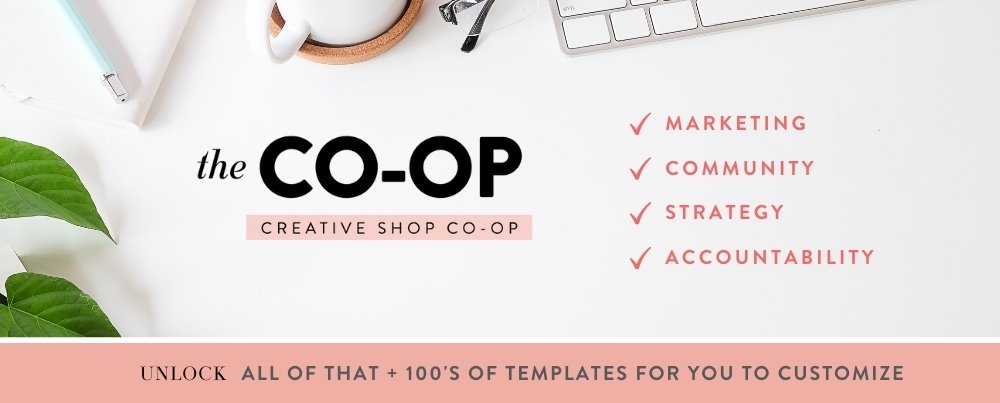Leaving a Legacy and Making an Impact with Kelly Roach of Kelly Roach Coaching
Episode 195: Show Notes
Today on the podcast we welcome Kelly Roach. Kelly is a national bestselling author, the host of the podcast Unstoppable Success Radio and the CEO of her own coaching company, Kelly Roach Coaching. Kelly has NFL cheerleading experience, Fortune 500 executive status and today is “bringing it” with strategy, mindset, wellness and everything in between that will help you build the legacy you want to leave behind. In this episode, we talk about how to create a legacy, what a legacy looks like for you and the impact tiny everyday decisions have on the future of your business. Our episodes usually center around getting a business off the ground, but the question we’re asking today is, what do you do after you’ve launched?
Often when we think of legacy, we think of something grand, something awe-inspiring, something world-renowned. But the truth is, no matter how small your business is, you can leave a legacy and according to Kelly, this is the calling and responsibility of all entrepreneurs. Kelly really unpacks what leaving a legacy means, and for creative entrepreneurs especially, this is super helpful to hear. Kelly gives us some great ideas on how we can create a more sellable business and stresses the importance of wellness and self-care in legacy building. If you are wanting to make an impact in the world with your business after you sell it, move on, or retire, then this is definitely an episode for the you of today and for the you of tomorrow!
Why Leaving a Legacy is an Entrepreneur’s Calling and Responsibility
For all business owners, thinking about legacy and making decisions every single day your future self will be proud of is the best rule of thumb to live by, says Kelly. The reason why Kelly is so passionate about this topic is because she has seen the culture we creatives fall into. The culture of now. “It needs to be now. It needs to happen now!” For creative people, products usually take time and thought to develop, and your idea may take many, many evolutions until it comes to fruition. Kelly believes thinking about your legacy is the number one most important thing that is going to allow you to win in business.
Thinking about legacy is two things. 1.) It’s thinking about what you are going to do today that you can be very proud of and grateful for in the future. 2.) It’s patience, most importantly. Which none of us have! Patience is a practice and a virtue and none of us business owners have it. You can’t make the right decisions out of a need for instant gratification or out of a lack of patience to follow through on what you’re truly capable of. A lot of entrepreneurs don’t have the confidence to feel like leaving a legacy is something they can do. However, Kelly believes the calling to become an entrepreneur in and of itself, is a calling to leave a legacy. It takes a lifetime to build a world class brand and business that has a really meaningful impact on the world (even though we all want to do it in six months or a year.) Although many of us will have success in six months to a year, it is no where near to where you could be if you commit to your craft and commit to building a legacy over a lifetime. A legacy, at the end of the day, is work that lives on beyond you and has an impact on the world that is bigger than you. And anyone who has a calling to become an entrepreneur is not only capable of that, but responsible for that.
How We Can Work on Having a More Long-Term Mindset?
We tend to think, “Oh my gosh! I just can’t comprehend where this could be in ten years from now and what my role will be!” But Kelly encourages us to think of our business more from the standpoint of making thousands of little decisions incrementally everyday. So instead of closing you off from possibilities, you are opening yourself up to them. If you are making tiny decisions everyday for the long-term rather than the short-term gain – then you are opening up wider and bigger opportunities for the future. You don’t need to have all the answers. You don’t need to have an exact plan. You probably don’t have any idea where you want to be in five or ten years from now, but what you want to do is make incrementally positive decisions that open up possibilities for the future everyday. Little decisions about how we treat our customers, how we show up online, what we share, what we don’t share, our interactions with people within our market – it’s those little things that are so meaningful.
So if you’re sitting there thinking, “How can my little business leave a legacy if I’m not Picasso?” Well first off, know that bigger is not necessarily better. You need to decide if your goal is to scale and grow your role from the artist into the CEO to teach and assemble other artists. Or alternatively, do you want to remain an artist, keep the business small and secure really meaningful opportunities? It is important to have a plan and a vision, to know yourself and imagine what kind of legacy you want to create. Is it a legacy of volume? Of serving people all around the world?
What Does Legacy Mean Outside of the Financial Component?
Although legacy is absolutely about the financial position you put people in after you’ve left, legacy does not need to be millions of dollars in the bank. Legacy needs to be defined by the person that’s intentionally creating it. In many instances, family members do not want to take on the family business, and a lot of times when family members are pushed into it, they are resentful. Legacy can mean so many things. But ultimately, a legacy is about creating a better life for the people coming after you, whether that is your family, your children, or not. A lot of the times you don’t want to pass on the financial gains of your business to your children because you might rob them of the ability to learn the attributes that come with having to learn and work for something of your own. Everything in moderation, right?
And when you think about legacy, we have to think about it in exactly the same way. The financial element is just one component yes, but legacy is also about impact in the world, how your family remembers you. Heck, legacy for you might be “You know what? I grew up with parents who each worked three jobs. They were stressed about money all the time and I never saw them because of work.” So legacy might be that your business allows your spouse to stay at home with the kids and you’re not rich but you’re comfortable, happy and present. The impact that that then has on shaping the life of your child, can’t even be quantified. Legacy is the difference you make for others, the relationships you have, it’s what happens to the business when you’re gone... But more importantly, your legacy is how you define it for yourself.
The Difference Between a Sellable Business and a Legacy Business
The difference between a sellable business and a legacy business is this: every business can be a legacy business based on what we’ve discussed, but not every business can be a sellable business because of the way it’s run or built. When you think about a sellable business, there has to be assets, infrastructure and profit outside of the business owner. Meaning, if you remove the business owner from that equation, is there still a functioning company? Can the business continue to grow and prosper without you? The biggest thing Kelly sees business owners come up against as they grow is the belief system that no one can do what you do the way you do it. We all have that little bit of ego inside of us. But at some point you just have to decide. And it doesn’t need to be an all or nothing switch. You can bring someone on part-time and train them up slowly and teach them what you know. If that doesn’t work for you, then work on growing your profit, because it will be hard to sell a business without that infrastructure behind you.
As your business grows, you will realize that there are a lot of coinciding products and services. So even if you are right now, like TCC, selling digital products, in the next five years you have no idea where the business might go. And maybe at some point there may be a part of the business where you can hire staff and train them so that they can then replicate and repeat. Anything and everything is possible and if you focus on good systems and good infrastructure at the baseline, then you will have so many more choices as to what you can do with your business.
The Role Of Wellness In Legacy Building And Sellable Business Building
Kelly believes that wellness is everything and has shared this very publicly. The reason she got out of the corporate world was because she could not maintain the pace. There was no space or time to take care of herself, and it was impacting her health. What Kelly has learned and seen, is when you sacrifice your health and wellness to grow the business faster it always comes back and crashes. And the little time you spent getting ahead in business, by not exercising or eating quick crappy fast-food, you pay back x100!
This is a consistent theme for Kelly’s clients and podcast guests, so from last year she made the commitment to work on her health and implement wellbeing, exercise, healthy eating, mindfulness into her day. She paid for all of her staff’s gym memberships and has them workout during the work day. She has made wellness a part of her business culture because she believes that it is a driver in your ability to grow and succeed in a sustainable way. Looking after yourself, has a ripple effect. Exercise is what drives your energy and energy is what drives your behavior, your action and results. If you feel good, you can share that positivity with those around you. Instead of going home drained and complaining after your day, you can return feeling energized and excited to play with your kids. Isn’t that a great legacy to leave behind too? So take that next step and make space for your wellbeing. When you take care of yourself, and show that you want your employees to take care of themselves too, you have no idea the impact that that message sends.
Quote This
You can’t make the right decisions out of a need for instant gratification.
—Kelly Roach
Highlights
Why Leaving A Legacy Is An Entrepreneur’s Calling And Responsibility. [0:04:05.1]
How We Can Work On Having A More Long-Term Mindset. [0:09:00.1]
What Does Legacy Mean Outside Of The Financial Component? [0:13:00.1]
The Difference Between A Sellable Business And A Legacy Business. [0:22:33.1]
The Role Of Wellness In Legacy Building And Sellable Business Building. [0:27:00.1]
#TalkStrategyToMe [0:41:25.6]
Do an assessment today of your big life goals.
Look for opportunities to better position the foundation of your company.
Focus on little decisions you have to make every day.
ON TODAY’S SHOW
Kelly Roach
Kelly Roach Coaching
Kelly Roach is the host of the top-rated podcast Unstoppable Success Radio, an International best-selling author, and the CEO of Kelly Roach Coaching. As a former NFL Cheerleader and Fortune 500 Executive where she was promoted 7 times in 8 years, Kelly brings a powerful combination of proven and profitable business growth strategies coupled with the mindset, wellness and productivity practices required to help entrepreneurs build a profitable business around a life they absolutely love. Kelly’s passion and purpose is in helping entrepreneurs around the world achieve exponential profit, sales and income growth.
KEY TOPICS
Legacy building, Selling a business, Business goals, Decision making, Achieve goals, Mindset shift





